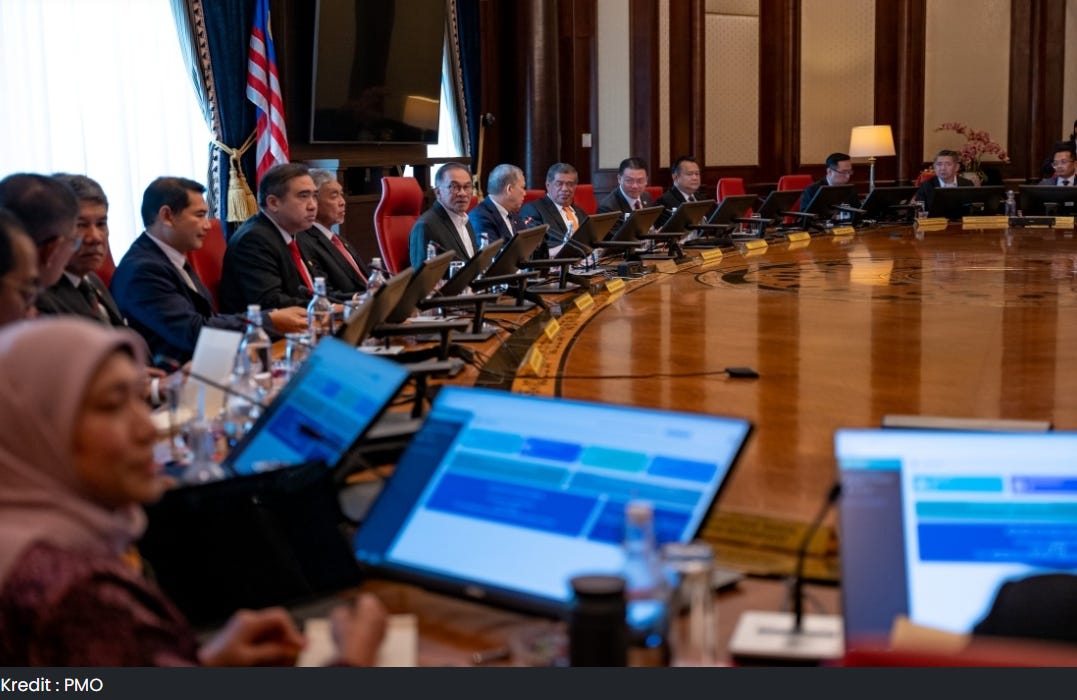
Murray Hunter
Cabinet power dynamics: PKR and DAP ministers reduced to civil servants
P Ramasamy
Aug 29, 2025

It increasingly appears that Cabinet decisions are primarily made by Prime Minister Anwar Ibrahim, with significant input from the two deputy prime ministers.
The rest of the Cabinet ministers function more like senior civil servants, entrusted merely with implementing decisions already adopted.
This is especially true for most PKR and DAP ministers, who, despite holding ministerial portfolios, have little influence over the government’s major policy directions.
In practice, Malaysia’s political structure has created a unique two-layered civil service: the first being the underpowered ministers from PKR and DAP, and the second being the actual bureaucracy.
While PKR and DAP provide substantial parliamentary representation, their presence does not translate into real Cabinet influence.
DAP, for instance, may boast 40 MPs, yet their parliamentary strength has little bearing on Cabinet-level decision-making. Evidence increasingly suggests that Cabinet power is concentrated in the hands of Anwar and UMNO, while PKR often attempts to present itself as another Malay-centric party.
Take the example of Anthony Loke, the DAP secretary-general and Minister of Transport. There is little indication of him critically engaging in Cabinet deliberations; instead, his role has largely been to endorse and implement government policies. His public persona is less of an independent political leader and more of a policy executor.
It is therefore unsurprising that critics, including some within MCA, have derisively referred to DAP as “MCA 2.0.”
typically a known ketuanan narratives operated by those melayu elites.
ReplyDeleteA modified version from those chanted by the zombies & blur-sotong.
Better in the sense that some results could be obtained due to able people in doing the jobs, provided NO racial interferences.
Palani Ramasamy raging day and night , pounding his fists in frustration at how he was robbed of his entitlement to be at that table😂😂😂
ReplyDelete